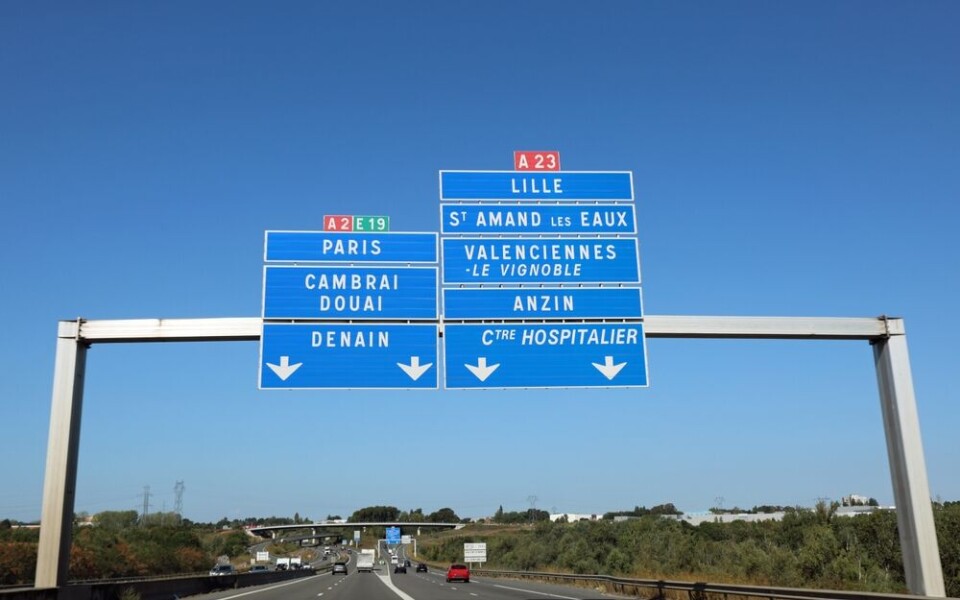-
French crisps brand gains global attention after Dua Lipa post
Singer posted photo of her shopping basket and the only food items were Brets crisps in braised chicken, honey mustard, and ‘Fromage du Jura’ flavours
-
Why supermarkets are urging shoppers to buy French leeks
Try our French classic leek vinaigrette recipe
-
New bill targets skiers under influence of alcohol or drugs
There are not currently any specific rules on skiing while under the influence
French city to trial paying drivers not to use motorway at rush hour
The scheme will pay €2 for each journey not taken. Critics have condemned the idea as ‘cosmetic’

The northern French city of Lille wants to trial a scheme that would pay drivers not to use motorways during rush hour.
The scheme, dubbed Ecobonus, aims to cut traffic on major roads at peak times.
It follows recent, similar trials in the Netherlands and the Paris suburb town of Boulogne-Billancourt, with the latter deciding not to continue the test.
Lille is aiming to recruit 5,000 volunteers for the experiment, which is set to run from September and last for nine months.
It will compensate drivers by €2 per journey if they do not drive during the hours of:
- 07:00 and 09:00
- 16:30 and 18:30
On the roads of:
- A1 motorway (Paris-Lille)
- A23 motorway (Valenciennes-Lille).
The idea comes from a similar scheme in 2016, in Rotterdam.
In a press release, the city of Lille said: “Three months after the end of the trial [in Rotterdam], more than 85% of drivers were still avoiding peak hours to travel.”
The Dutch city managed to reduce motorway traffic by 17%, figures show. Damien Castelain, president of the Métropole de Lille (Mel) added: “Even if we manage to reduce the traffic by 6%, that will be enough to get it flowing.”
The A1 motorway in particular currently sees 12,000 vehicles per hour at peak times.
Read also: France travel wrap: Ferries cancelled and new Paris-NYC flights
Who can take part?
Residents who typically drive during rush hour, who live in Béthune, Lens, Arras, Cambrai, and Valenciennes.
Volunteers are invited to sign up for the scheme on the website changercarapporte.fr, between April 3 and May 12.
Mr Castelain said: “In May and June, we will verify volunteers’ eligibility via automatic number plate recognition cameras, which will be installed in three places along the A1 and A23.
“Drivers must currently use these roads during peak hours [to be eligible].”
Volunteers who are successfully verified will then need to download the dedicated app and accept that it will follow them using GPS on their smartphone, to check that they have changed their driving times.
Mr Castelain said: “We’ll trust people [to do it correctly], but we’ll also run checks too.”
Critics denounce idea as ‘cosmetic’
The green party in the Mel has condemned the idea, calling it “cosmetic and illusionary, based on a false idea: that people caught in traffic during rush hour can suddenly do something different if you pay them €2 per journey”.
They added: “The scheme in Rotterdam used video to identify and check 12,000 participants, and reached 5,000 journeys avoided per day on average. But the ecology ministry has said that this isn’t feasible in France.
“What’s more, other schemes that rely on GPS localisation have shown that there is a significant risk of fraud.”
The green party also highlighted two Dutch studies, which were less positive about the results of the Netherlands scheme. They said that the results were limited, and the system was eventually dropped after having been rolled out temporarily in several Netherlands cities. Traffic was back up to previous levels after two years, they said.
Transport changes
However, the Mel has said that the Ecobonus scheme is just one system it is trialling as a way to change transport habits, equalling €11.3million of funding in total.
This includes aid from the state, the European Union, and the Hauts-de-France region.
If the Ecobonus scheme is considered to be successful, it is aiming to roll out the system on the A25 (Dunkirk-Lille), A22 (Belgium-Lille) and the RN41 (La Bassée-Lille).
The Mel is also planning to unveil carpool lanes in 2023, which it hopes will encourage people to share vehicles on similar journeys. Currently, Lille statistics show that there are on average only 1.1 passengers per vehicle on its motorways.
Mr Castelain said: “By the end of the year, and possibly even by the end of July, the third lane of the A1 will be reserved for car-sharers, with a €100 bonus available in addition to the Ecobonus.”
Related articles
Northern French city to offer cash bonuses for carsharing on motorways
Motorways tolls in France set to rise: what can drivers expect in 2023
Motorists highlight issues with France’s first free-flow toll motorway
























